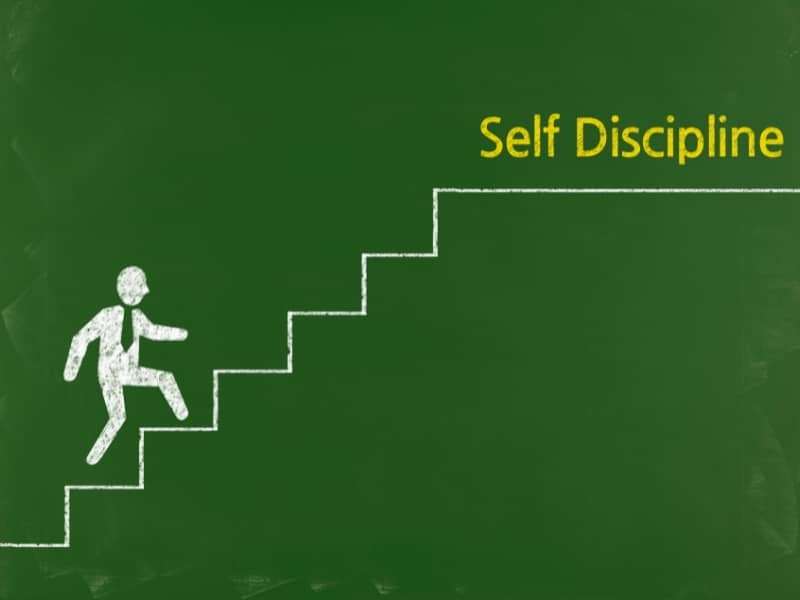Many people want to lose weight in a short time to achieve rapid results. But choosing sustainable methods provides lasting health benefits. You can reach your weight goals. This will help you feel better, have more energy, and improve your relationship with food. Quick fixes can cause yo-yo dieting. But a sustainable approach helps you make lasting changes for better health. Understanding sustainable weight loss is key to achieving lasting success. This helps you keep your results over time.

Table of Contents
- I. Understanding Sustainable Weight Loss
- II. Quick Results vs. Sustainable Weight Loss
- III. Tips for Achieving Sustainable Weight Loss
- IV. Step-by-Step Guide to Sustainable Weight Loss
- V. Overcoming Challenges in Sustainable Weight Loss
- VI. Long-Term Maintenance Strategies
- Sustainable Weight Loss for Long-Term Health
- FAQ
Key Takeaways:
-
Sustainable weight loss offers lasting health benefits. It helps lower the risk of chronic diseases linked to obesity.
-
Losing weight at a gradual pace can boost mental health. It helps people build a better relationship with food and their body image.
-
Quick results can lead to rebound weight gain. Sustainable methods support lasting lifestyle changes that are easier to maintain.
-
Focusing on sustainability helps build healthy habits over time. This can improve fitness and boost your quality of life.
-
Investing in a sustainable weight loss journey builds resilience and self-efficacy. This helps individuals achieve their health goals.
I. Understanding Sustainable Weight Loss
For lasting weight management, focus on sustainable strategies. Choose gradual changes instead of quick fixes. This approach boosts your well-being and helps you build healthy habits. These habits can last, so you not only see results but also keep them. Sustainable weight loss helps create a balanced lifestyle. It fits your needs and preferences.
1.1. Types of Sustainable Weight Loss
To explore effective methods, consider the following types of sustainable weight loss:
-
Balanced Dieting
-
Regular Physical Activity
-
Mindful Eating Practices
-
Setting Realistic Goals
Once you find the types that fit you best, adding them to your life will help create lasting change.
| Type | Description |
| Balanced Dieting | Focus on whole foods to nourish your body. |
| Regular Physical Activity | Engage in exercise you enjoy to stay active. |
| Mindful Eating Practices | Being aware of what and how you eat. |
| Setting Realistic Goals | Establish achievable weight loss objectives. |
1.2. Factors Influencing Sustainable Weight Loss

Several key factors affect your ability to lose and keep off weight. These include psychological, environmental, and biological aspects. These factors are key in your journey. They shape your choices and boost your motivation. They also strengthen your commitment to a healthier lifestyle.
-
Personal Motivation
-
Social Support Network
-
Access to Healthy Foods
-
Stress Management Techniques
By keeping these points in mind, you can build a supportive space for lasting success.
Your motivation might come from personal goals or health worries. Your friends can have a significant impact on your decisions. Additionally, environmental access to nutritious foods is necessary. Consistent stress management helps you maintain a balanced weight. This way, you can handle challenges with greater effectiveness.
-
Positive Mindset
-
Regular Exercise Routines
-
Nutrition Knowledge
-
Self-Discipline
When you see these factors, you can use strategies that suit your life. This helps you achieve lasting weight loss.
II. Quick Results vs. Sustainable Weight Loss
Quick results and sustainable weight loss are not the same. Quick weight loss claims fast results with little effort. But these changes often don’t last. Sustainable weight loss emphasizes slow lifestyle changes. These changes help you succeed in the long run and improve your health. Choosing the latter shows you value your well-being. It helps you create lasting habits.
2.1. Pros and Cons of Quick Weight Loss

The immediate appeal of quick weight loss solutions may tempt you to pursue them. It’s important to consider the benefits and drawbacks to make a smart choice.
The 200 Most Popular EBooks>>>
Pros and Cons of Quick Weight Loss
| Pros | Cons |
|---|---|
| Rapid results | Unsustainable long-term |
| Boosts motivation | Can lead to health risks |
| Increases confidence temporarily | May cause nutrient deficiencies |
| Encourages competition | Potential for yo-yo dieting |
| Simplifies meal planning | Can negatively affect metabolism |
2.2. Pros and Cons of Sustainable Weight Loss
Fast weight loss is thrilling, but lasting benefits come from steady weight loss. These benefits far outweigh any short-term results. You deserve a plan that promotes your health in the long run.
Pros and Cons of Sustainable Weight Loss
| Pros | Cons |
|---|---|
| Long-lasting results | Takes more time |
| Improves overall health | Requires commitment |
| Adapts to lifestyle changes | May involve trial and error |
| Promotes healthier habits | Less immediate satisfaction |
| Reduces risk of regaining weight | Requires patience and persistence |
Sustainable weight loss results from lasting behavioral transformations. Focus on building a healthy relationship with food and exercise. Don’t aim for quick weight loss. This boosts your physical and emotional health. It also builds the confidence to embrace all aspects of life.
III. Tips for Achieving Sustainable Weight Loss

Keep your focus on long-term health and well-being rather than instant gratification. Install these strategies to make your weight loss journey more sustainable:
-
Set realistic and achievable goals.
-
Incorporate regular physical activity into your routine.
-
Focus on whole, nutrient-dense foods over processed options.
-
Stay hydrated and check your portion sizes.
-
Build a support system with friends or community groups.
Small, consistent changes can lead to lasting results. This will help you on your journey to sustainable weight loss.
IV. Step-by-Step Guide to Sustainable Weight Loss

Once again, adopting a sustainable approach to weight loss requires commitment and patience. Here’s a structured guide to help you navigate your journey with clarity:
| Step | Action |
|---|---|
| 1 | Set realistic goals that can be achieved over time. |
| 2 | Focus on whole, nutrient-dense foods rather than processed options. |
| 3 | Incorporate regular physical activity into your routine. |
| 4 | Keep a food journal to track your intake and progress. |
| 5 | Practice mindful eating to enhance your relationship with food. |
You can create a balanced weight loss plan that fits your life by following these steps.
V. Overcoming Challenges in Sustainable Weight Loss

Even with your dedication to sustainable weight loss, challenges will come up. These can include emotional eating, peer pressure, or even a plateau in your progress. It’s important to develop coping strategies that target these hurdles. Setting realistic goals can help. Also, find a supportive community. Practice mindfulness techniques to stay focused on your journey. Seeing these challenges as part of the journey will help you grow. This mindset helps you become more resilient. It also encourages a better relationship with food and your body.
VI. Long-Term Maintenance Strategies

Sustainable weight loss means more than reaching your goal weight. It’s also about keeping that weight off for the long term. To build lasting habits, focus on balanced nutrition. Also, include regular exercise and practice mindful eating. Try these strategies every day. They help you create a healthy relationship with food and your body. This makes it easier to handle any challenges that come your way. Set realistic goals and stay consistent. This helps you lose weight and maintain a healthier lifestyle for years.
Sustainable Weight Loss for Long-Term Health
Choosing sustainable weight loss over quick fixes helps you develop healthier habits. These habits improve your well-being. Focusing on small changes lets your body adapt. This helps lower the chance of gaining weight back. This approach builds a good relationship with food and exercise. It also improves your physical and mental health over time. Living a balanced life helps you reach your goals and enjoy lasting success.
FAQ
Q: Why is sustainable weight loss more beneficial than quick results?
Sustainable weight loss is about long-term health. It focuses on well-being instead of quick weight changes that don’t last. This approach promotes healthy eating, regular exercise, and lasting lifestyle changes. Quick results can cause yo-yo dieting. This means you lose weight, then gain it back. This cycle can harm your physical and mental health.
Q: What are some methods for achieving sustainable weight loss?
To lose weight in a sustainable manner, focus on a balanced plan. Eat healthy foods, exercise often, and get support for your mental health.
Strategies may include:
-
Meal planning for a balanced diet
-
Setting achievable fitness goals
-
Practicing mindfulness or stress reduction.
-
Seeking support from a community or healthcare provider.
These methods help people build a healthy lifestyle that they can stick to for the long haul.
Q: How does sustainable weight loss impact mental health compared to quick weight loss?
Losing weight in a sustainable manner can enhance mental health. It boosts body image, raises self-esteem, and reduces diet and body anxiety. Fast weight loss can lead to a mix of feelings and might raise the chance of disordered eating. A steady approach helps people build a better bond with food and exercise. This also boosts their mental health.
Q: How can people prevent regaining weight after a sustainable weight loss journey?
To avoid gaining weight, people should keep up the healthy habits they built during weight loss. Keep eating a balanced diet. Stay active. Watch your portion sizes. Be aware of emotional eating triggers. Set realistic goals and celebrate non-scale victories. These can include better fitness or clearer thinking. Celebrating these wins helps reinforce positive behaviors.
Q: Are there any drawbacks to quick weight loss methods?
Quick weight loss methods can have drawbacks. These include nutrient deficiencies, loss of muscle mass, and slower metabolism. These methods can cause feelings of deprivation. This might lead to binge eating or unhealthy habits. Quick weight loss often doesn’t stick. This can leave people feeling frustrated and disappointed when the weight returns. A sustainable approach, while slower, promotes healthier practices that lead to lasting results.





